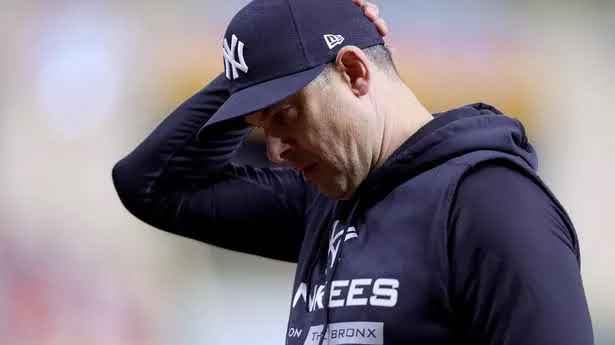
Something smelled bad in the Bronx during the whole summer and a thankfully brief fall, and it wasn’t the exhaust from I-95. I experienced this smell personally, at considerable financial cost, and for very little other reason than my tribal loyalty to the rugged creature that preoccupied my boyhood with the Core Four. But now that baseball’s protracted regular season is finally ended, it’s time to own up to the following—or at least give it a thorough cleaning—: The New York Yankees of 2023 were just bad. I visited Yankee Stadium again in July, August, and even September even though I had no idea in April, had a sense in May, and was positive by June. This statement is not very proud.
They were unable to strike. They had one valuable position player and one starter pitcher. Their signature approach was one of abrupt and intense sadness for those who paid to watch it. During the Yankees’ second-to-last home stand in the game I went to this season, I witnessed a beer vendor calling second baseman Gleyber Torres a “fucking bum” as he was selling his wares off the first-base line. This was done before the infielder had even dipped a toe in the batter’s box, effectively thwarting the team’s latest disastrous attempt at a rally.
The air was poisonous. It wasn’t very excellent. We Yankee supporters desired a victor. All we ever desire is a victor. Roger Angell, the game’s poet laureate, once described these expectations as “admirable but a trifle inhuman.” The Bronx Bombers’ alluring black book, or their sales pitch, is that there is a team that front-runners may support when they want a world without failure. Even in this “disaster” of a season, they finished 82-80, marking their 31st consecutive season without a losing record. This club never gives up. They are meant to rise beyond it, and this is now also the symbol of their decline: they are not meant to go this low.
The worst summer Yankeeland has seen since the Clinton years ended on Sunday. Their one-and-a-half-season of unreservedly mediocre baseball comes to an end with their first fourth-place finish in the American League East since Cleveland, Detroit, and Milwaukee were still in the division. Their on-field performance was slow, stiff, and devoid of adaptive strategy as the upper echelons of the franchise continued to decline. The Yanks’ situation has clearly deteriorated, but it hasn’t happened suddenly or even clearly. From my seats in the grandstands, to my gatherings in the pubs along East 161st Street, or to watching their broadcasts, I observed, heard, and sensed that these Yankees performed a lot of things poorly instead of just one grave mistake.





